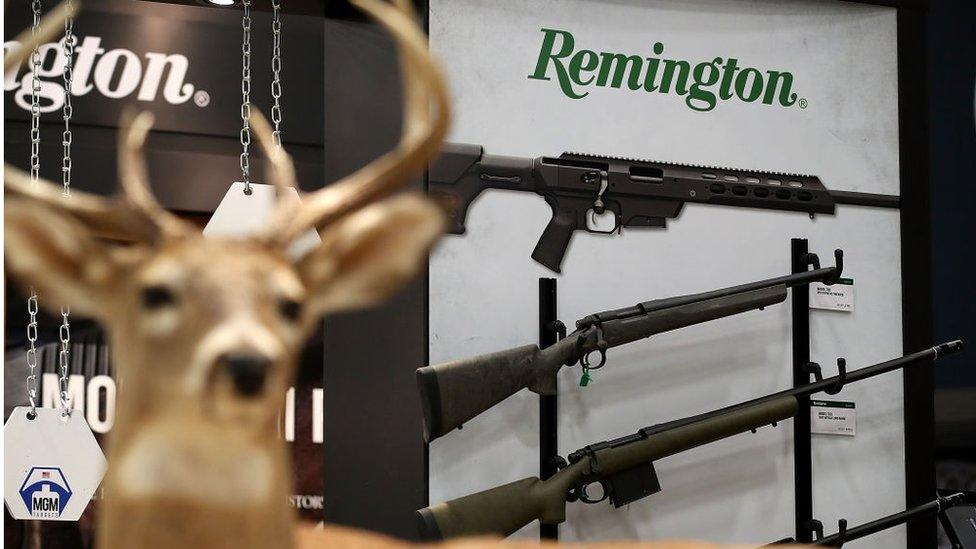Parkland gunman planned 'systematic massacre' - prosecutors
- Published
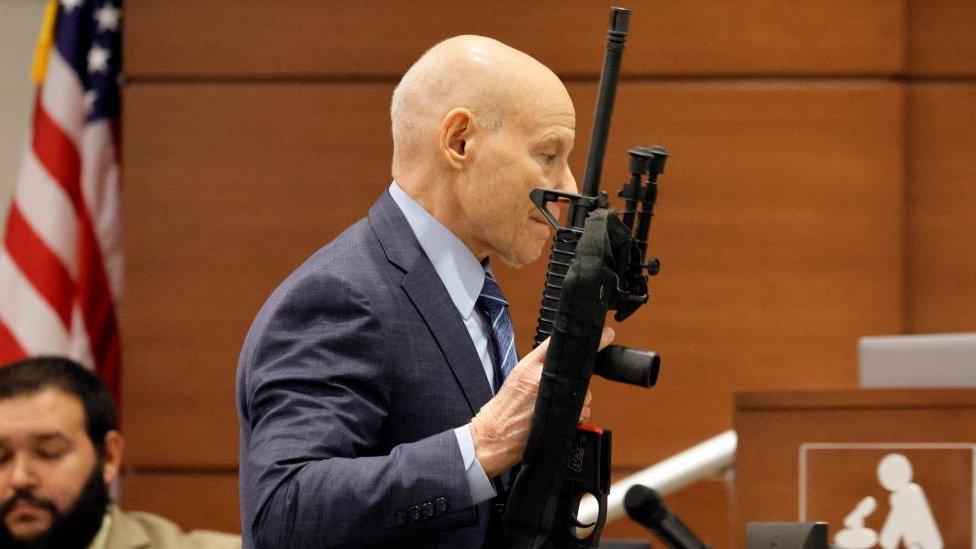
Prosecutor Mike Satz on 2 August showing jurors the rifle used in the shooting
A man who carried out a mass shooting at a Florida school in 2018 planned a "systematic massacre" and should be sentenced to death, prosecutors say.
Nikolas Cruz, 24, pleaded guilty in October last year to 17 counts of murder and attempted murder.
Closing arguments in his death penalty trial began on Tuesday, and a jury must decide whether he will be executed or spend the rest of his life in prison.
The case is the deadliest mass shooting to reach a jury trial in the US.
"What he wanted to do, what his plan was, and what he did, was to murder children at school and their caretakers," assistant state attorney Michael Satz said.
"It was calculated. It was purposeful. And it was a systematic massacre," he added.
Mr Satz gave a graphic moment-by-moment account of the shooting at Marjory Stoneman Douglas High School in Parkland, describing how each victim died and where they were located. Video of the attack was also shown to jurors in a bid to show how "tactical and purposeful" Cruz's actions were.
Mr Satz said the shooting was "highly premeditated" and included the aggravating factors that would justify the use of the death penalty under Florida law.
He also pointed to research Cruz had conducted online, as well as online comments in which he vowed to show "no mercy". In one video, Cruz said he planned to be "the next school shooter" and that his goal was to kill 20 people.
"What someone writes and someone says is a window into a soul," Mr Satz said. "He told everybody what his plan was".
During the closing arguments, Cruz could be seen with his head in his hands. There was no other visible reaction apart from a few moments of whispered conversation with his lawyer.
In her own closing argument, Cruz's defence lawyer Melisa McNeill portrayed him as a troubled man who had been affected by his mother's alcohol and substance abuse. She added that she believed a life sentence was "the right thing to do".
Ms McNeill said a death sentence would "change nothing" and would "not bring back" the victims.
The 12 members of the jury will begin deliberating his fate on Wednesday.

More coverage

Before his guilty plea last year, Cruz's lawyers had asked the court to impose 17 consecutive life sentences for the massacre but that offer was rejected by prosecutors.
Apart from the death penalty, the only other outcome for Cruz would be life in prison without the possibility of parole.
In most US criminal cases, a jury determines culpability after which the judge decides on the punishment. In this case, however, the jury must decide how Cruz will be sentenced. They will need to unanimously agree to recommend the death penalty.
Over the course of the death penalty trial that began on 18 July, prosecutors have sought to convince the jurors that Cruz deserves to be executed for for the "goal-directed, planned and systemic murder" of 14 students and three staff members at Parkland.
They have shown jurors graphic video evidence taken at the school and taken them on a tour of the still-preserved crime scene.
Florida's last execution took place in 2019, when 57-year-old Gary Ray Bowles was put to death for the murder of six men in 1994.
"Our kids died in the Parkland school shooting, but we disagree on guns"
- Published23 August 2022
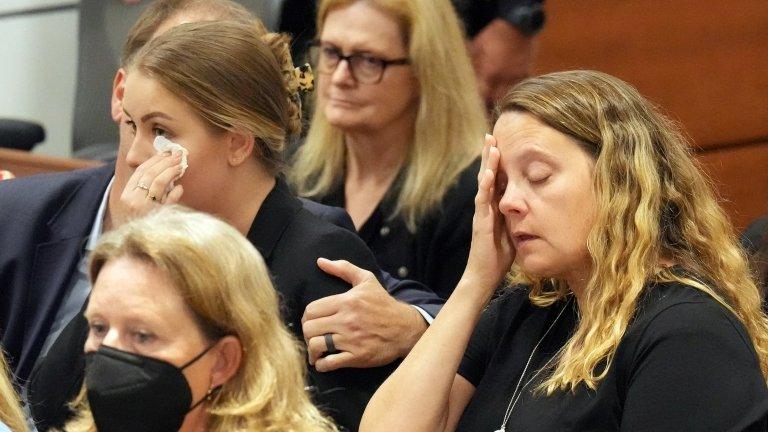
- Published15 February 2022
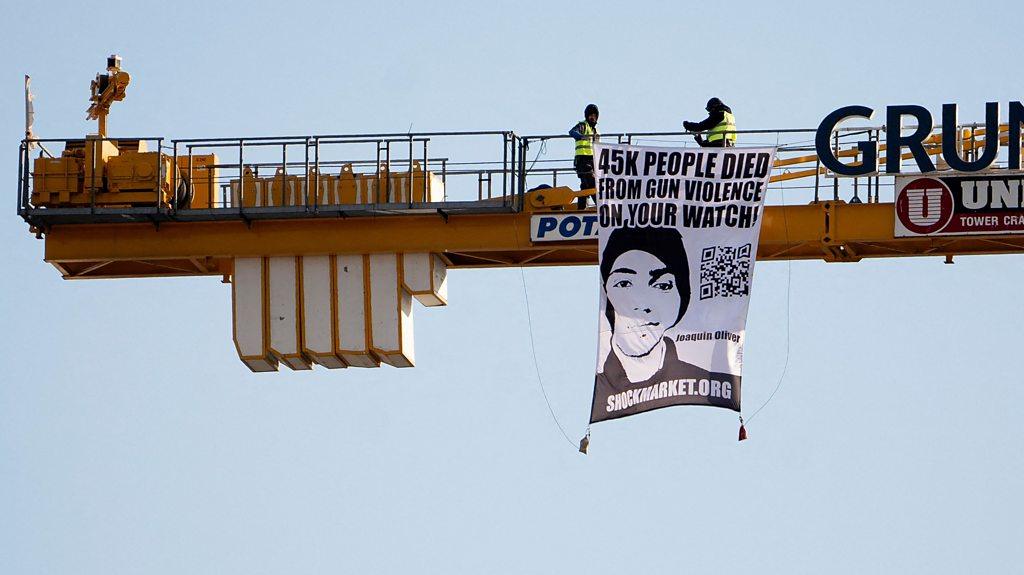
- Published20 October 2021
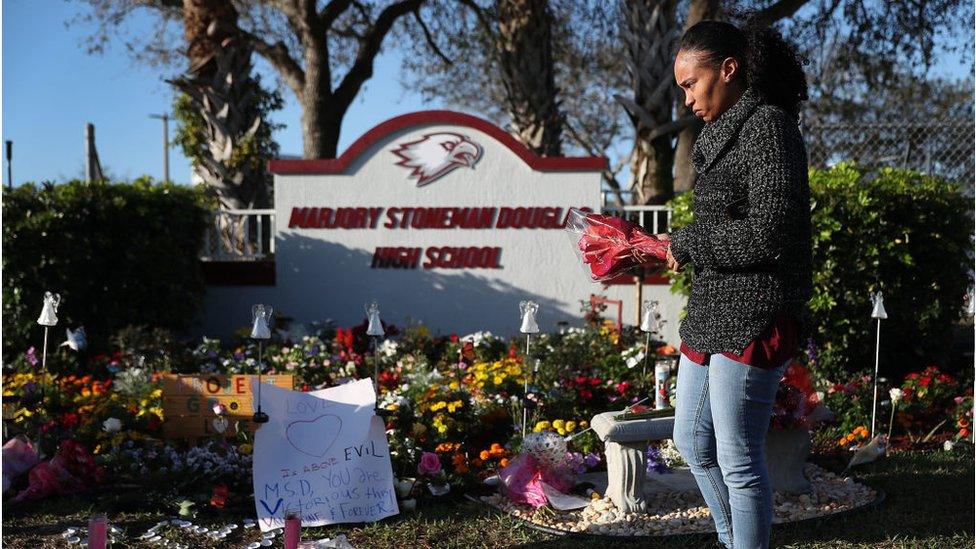
- Published28 July 2021
